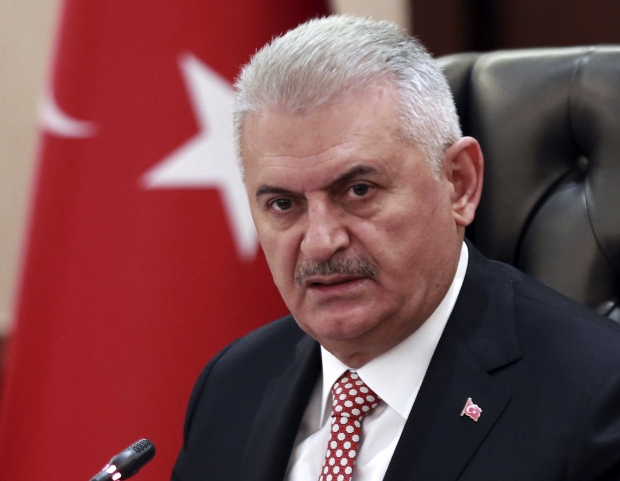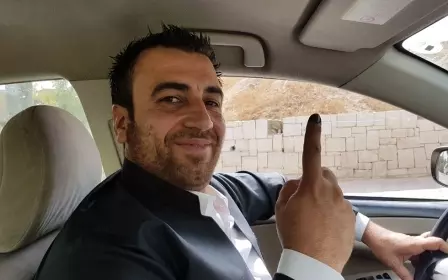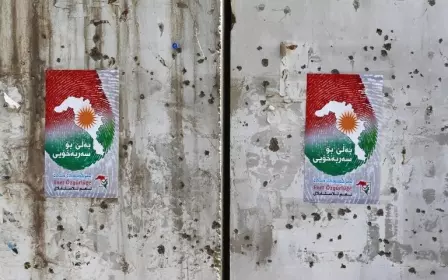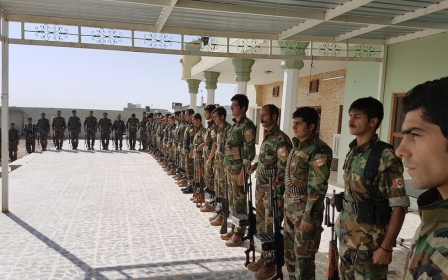'We can arrive any night': Erdogan warns Iraqi Kurds of invasion
ISTANBUL, Turkey – Turkey's president on Monday threatened Iraqi Kurdistan with the prospect of invasion "any night" and a blockade of its oil industry, as Iraqi Kurds voted in a referendum on independence.
Recep Tayyip Erdogan launched his broadside moments after his prime minister, Binali Yildirim, had told Turks via television that the country reserved the right to protect its interests but "relax... we are not going to war".
'We can arrive unannounced any night'
- Recep Tayyip Erdogan
Erdogan did not stop there and warned the financially beleaguered Kurdish Regional Government (KRG) of economic retribution as well.
"Let's see where northern Iraqi oil will flow to. The tap is with us," he said. "It's finished the moment we close it."
Turkmen warning
Erdogan's foreign minister, Mevlut Cavusoglu, then said Ankara would intervene militarily if the Turkmen population in Iraq was targeted.
Turkey has been allowing the Erbil government to export around 500,000 barrels of oil daily in return for a transit fee after Erbil and the Baghdad government fell out over revenue sharing.
Erdogan said the military build-up and training exercises along the border with northern Iraq were not just for show.
Turkey has amassed troops and is conducting military exercises in the border area. Reports on Saturday suggested Turkish tanks had assumed attack positions.
Yildirim in his televised address had also suggested the oil-rich city of Kirkuk had been ethnically cleansed over the years.
"When you look at census figures, 70 percent of Kirkuk was Turkmen in the 1970s. Now it has been reduced to around 30 percent of the population,” he said.
Neighbours of the KRG see economic strangulation as the most effective means to target the Erbil government.
Yildirim said Ankara would not need to consider its own loss of transit fees, which are minor, and could block the flow of Kurdish oil whenever it wanted.
Turkish aid to KRG
Turkey has even had to step in and grant financial assistance to Massoud Barzani's government in the past so it could afford to pay the salaries of public workers.
Erdogan also warned that closing of border gates was an option that he was still considering.
Increased controls at Turkey's Habur border gate on Monday had considerably slowed down cross-border movement, reports said.
Neighbouring Iran has taken even more stringent steps, according to news reports, and sealed off its airspace to the Erbil government, cancelled all commercial flights to Erbil and Sulemaniyah, and shut down its land borders.
Yildirim also hinted at putting aside all differences with Iran and Iraq to coordinate their actions against Barzani's referendum, which he said was called because of his precarious domestic political situation over the last few years.
The Syrian foreign minister, Walid Muallem, was also reported as saying on Monday that the Damascus government only recognised a unified Iraqi government ruled from Baghdad.
Turkish parliament last week renewed an annual authorisation, allowing cross-border intervention by Turkish troops in Iraq and Syria.
The opposition Republican People's Party (CHP) endorsed the extension but blamed the ruling party for creating this situation in the first place.
The government, which viewed Barzani's Kurdistan Democratic Party as a less reviled Kurdish group, has in the past treated his visits as state affairs and even raised the KRG flag in Ankara and Istanbul on various occasions.
The Turkish government has announced that it considers the referendum illegitimate and will not recognise its outcome regardless of the result.
New MEE newsletter: Jerusalem Dispatch
Sign up to get the latest insights and analysis on Israel-Palestine, alongside Turkey Unpacked and other MEE newsletters
Middle East Eye delivers independent and unrivalled coverage and analysis of the Middle East, North Africa and beyond. To learn more about republishing this content and the associated fees, please fill out this form. More about MEE can be found here.





